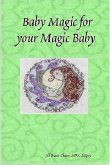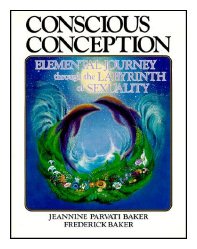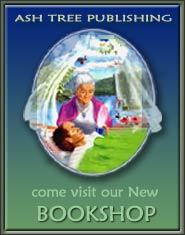Devra: Because some readers may not know much about you, I thought we could start off with you giving me a brief history of you and your work.
Susun: I was born on the shores of Lake Erie. My conception, in 1945, arose from a world-wide desire for peace. When I was two, we moved to Dallas Texas; too hot and dry for me, but perfect for my mother, who had sinus problems.
In my sophomore year, my chemistry lab partner Phoebe responded to my complaint that high school was a waste of time by suggesting that I just leave and go directly to college. So I took the SAT’s, finished in the top percentile, and then had to choose between MIT, who insisted that I take a remedial chemistry course that summer, and UCLA. Thinking chemistry would never be that important to me (ha, ha), I chose UCLA.
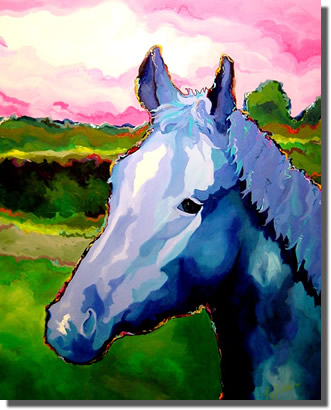 Devra: Little did you know.
Devra: Little did you know.
Susun: I spent three wonderful years at UCLA, met the father of my daughter, and became pregnant. When I was seven months pregnant, we moved to Manhattan. I was absolutely adamant that I was going to have a natural child birth and breast feed my baby. To say that right now in 2006 is not much, but 40 years ago…
Devra: People thought you were crazy.
Susun: It wasn't easy, but I did manage to have a natural child birth, and to nurse my daughter for over a year. About that time I realized I didn't want to raise my child in Manhattan. There is a lot of green in New York City, and we spent lots of time in Central Park, the Cloisters and Riverside Park, but I wanted her to have the pleasure of growing up in the country, where she could really roam. Some friends told me that there was a really nice community in the Catskill Mountains called Woodstock. This was before the Woodstock Festival, in 1968.
Let’s just roll back a little bit: to before Justine was born, to 1965. Like any pregnant woman, I had some minor problems: pains, indigestion, constipation, you know. I refused take drugs, because, if you’ll remember, 1965 was the year when babies born with no arms, no legs, were in all the newspapers. Their mothers had taken Thalidomide, a drug assumed to be safe during pregnancy. One day, I found myself at the Manhattan Library, walking up all those steps between the stone lions, going in, and asking for books about herbs. In 1990 my aunt told me my great, great-grandmother had been a village herbalist in Switzerland. Perhaps she was whispering in my ear, though I wasn't consciously aware of it in 1965. By 1968, I had been reading about and using medicinal herbs for several years and I was ready to have a garden. As soon as we moved upstate to Woodstock, I got some seeds and planted them. Wow! Things started growing. The only difficulty: I didn’t know which were the herbs and which were the weeds.
Devra: That would be confusing. Didn’t the herbs look like the pictures on the packages?
Susun: None of it looked like anything; they were sprouts, only an inch tall. And, I figured, they were never going to look like the pictures, unless I figured out which were the plants and which were the weeds. Lucky for me Euell Gibbons's books began to be available. He taught me that the weeds were, in fact, herbs incredible medicinal plants. The plants that I was being told to pull out of my garden -- dandelion and burdock, chickweed and yellow dock, lambs quarters, amaranth and purslane -- have more nutritive and medicinal value than anything I could grow. That was the beginning of my championing the weeds.
Devra: Hence, the name.
Susun: Yes. My married name was Swede; my unmarried name became Susun S. Weed. Herbal medicine is people’s medicine. Herbal medicine is the primary medicine of most people on this planet, right now. It’s not something old and dusty. It s not a bunch of doctors and chemists figuring out how to use herbs like drugs. Herbal medicine is a 3-year-old picking plantain and putting it on a skinned knee or an insect bite. Herbal medicine is the medicine of women and children. It is the medicine of the earth. It’s medicine that’s free. It’s not something that must be studied before it can help you. Start with one plant. Approach herbal medicine directly, hands on, in the back yard with your children.
Devra: I’ve never heard it put that way and that’s so great, because so many people… In fact, one of the questions I was going to ask you was about self-treatment versus seeking the advice of an herbal practitioner.
Susun: So long as I live, there will never be licensure for herbalism. Licenses don’t protect consumers; the protect the establishment. Let’s all be herbalists, just like we are all be dancers and singers. Certainly, we will seek out those with experience, but that isn't necessarily a practitioner. You can be your own herbalist, if you keep it simple. First, divide herbs into four categories: nourishing, tonifying, stimulating/sedating, and potentially poisonous. Use nourishing herbs daily, tonifying herbs regularly, stimulating/sedating rarely, and potentially poisonous herbs almost never.
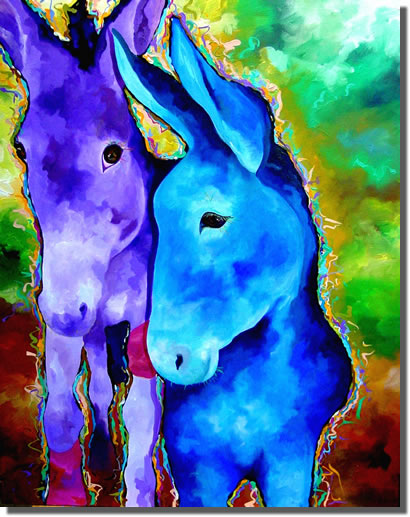 Devra: Tell me more.
Devra: Tell me more.
Susun: Nourishing herbs are nutritive plants such as kale, garlic, dandelion greens, rolled oats, plantain seeds, blueberries, and edible weeds -- the powerhouses of nutrition. Nourishing plants can be used in any quantity for any length of time.
Devra: So, we do some of this automatically, like with household herbs, such as cinnamon and ginger.
Susun: Those are stimulants. They are not nutritive. Nutritive herbs are rich in minerals and vitamins. One hundred grams of dandelion (about ½ cup of greens) has 14,000 IU of vitamin A.
Devra: I keep hearing vitamin A is not good for you to take.
Susun: That’s right, as vitamin A. But plants don’t contain vitamin A which is made by the liver. Dandelion, like all leafy greens, contains carotenes, which the body uses to create vitamin A as it needs it, so there's no overdose. A hundred grams of stinging nettle contains 3,000 milligrams of calcium. These are not the insignificant little bits of vitamins and minerals that you get from even well-grown food. Weeds really pack it in. Purslane has more Omega fatty acids than fish oil capsules. I advise my students to stop taking all supplements and focus on nourishing herbs: simpler, safer, less expensive.
Devra: What about the other categories of herbs?
Susun: Tonifying herbs are like exercise; they include such plants as burdock, dandelion root, yellow dock, motherwort, ginseng, astragalus, chaste berry, schisandra. One of the benefits of exercise, of tonification, is that it helps us when we’re stressed. You’re not necessarily going to feel better if you exercise once for ten minutes. But, if you exercise for ten minutes every day, after several months, you will notice changes.
Devra: These tonifying herbs have the same effect, except on a cellular level?
Susun: Exactly. What’s confusing is the difference between tonifying and stimulating herbs. When we take tonics, we feel better and have more energy. When we take stimulating herbs, we also feel better and have more energy, but only when we are stimulating ourselves. There are immediate uncomfortable effects when we lack our stimulant, but no decrease in health if we stop taking the tonic. Ginger and cinnamon certainly have their uses. But they don’t build health.
Devra: I’m a ginger junkie, I love it.
Susun: Over the long run, stimulants erode our health. Nourishing ultimately gives us more energy, though it will take a few days to feel it, whereas the effects of stimulants are immediate. My apprentices drink two or more cups of nourishing herbal infusion daily. And after ten days, their skin is nicer, they have more energy and stamina, they stop craving sweets, and they feel a lot better over all
Devra: One of the benefits, obviously, is it increases your stability and your metabolism would probably speed up a little.
Susun: Stability and stamina. With nourishing and tonifying herbs in our daily lives, we have solid energy that adds to health instead of subtracting from it. Instead of raiding my storehouse with stimulants, I build my reserves with nourishing herbal infusions.
Devra: You wouldn’t recommend, necessarily, that someone go out and buy everything that falls into the tonic category and take it all at once?
Susun: I recommend that people drink nourishing herbal infusions on a daily basis. Everything will follow from there. One morning at our talking stick ceremony, one of my new apprentices told me: I hate you.” Excellent! One of the first things that an apprentice has to do is transfer her shadow self to me. We can’t see our own shadow; we have to project it onto someone else—and then we hate that person. I’m excited that she already hates me, and curious as to why. You made my M&M’s taste bad,” she continued. I’m thinking: "I didn’t do anything to her M&M’s. I didn’t even know she had any.” She says, I brought two bags of M&M’s with me because I didn’t think you’d give me chocolate.” I would; I do. I keep a five kilogram bar of dark chocolate on hand, because I consider dark chocolate an important health food.
Devra: That’s good to know. I love my dark chocolate.
Susun: She said, When I opened the second bag, last night, I almost gagged at the smell.” She was so nourished -- and after less than two weeks drinking nourishing herbal infusions -- that she couldn’t abide the smell of food that wasn’t nourishing. It takes seven years to replace every cell in your body, but only a couple of years to replace your atoms. Nourishing herbal infusions bring a lot of powerful new atoms into you.
Devra: I want to know more about ginger.
Susun: Stimulating/sedating herbs are some of the most widely used of all herbs. They include coffee, tea, cinnamon, ginger, hops, kava kava, licorice, passion flower, skullcap, valerian, willow, and wintergreen. They are best used when there is a specific need: A pre-diabetic might choose to take a teaspoonful of cinnamon daily. Ginger compresses are great, and I enjoy it in my food, occasionally. The point with these herbs is to avoid daily use.
Devra: But they aren't poisonous?
Susun: No, the last category is potentially poisonous herbs, ones we only in extreme situations, to ward off death. I include goldenseal, poke root, cayenne, rue, sweet clover, and wormwood in this category.
Devra: Goldenseal! But everyone says to take it. What does it actually do?
Susun: It’s a broad spectrum antibacterial. It kills more gut flora than antibiotics. It negatively impacts kidney, liver, and gut function. In forty years as an herbalist, I have used it only once: externally. It is overused, to the detriment of people's health, and to the near extinction of the plant itself.
Devra: In your book Healing Wise you discuss different medical traditions. What are they?
Susun: The Wise Woman Tradition, the Heroic Tradition and the Scientific Tradition. They overlap, but, in general, the Heroic tradition is called alternative medicine. It dates back to ancient Greece and the idea that there are four "humors." Disease occurs due to disruption of the humors. George Washington got the flu. The best healers of the day, who were heroic healers, puked him. He didn’t get better, so they purged him. He got worse, so they bled him. He got worse. They puked, purged, and bled him again. He died.
Devra: That wasn’t too helpful.
Susun: That was the best medicine of the day. Today, we think of the humors as toxins, and people continue puke, purge, and poke, only now, we call it "cleansing." My experience has shown me that cleansing does no good and can cause great harm. The heroic tradition prefers stimulating, sedating, and potentially poisonous herbs; and they generally use complicated mixtures of herbs. They want to be the heroes. The problem with these very potent herbs, however, is that they must be given in very accurate doses. This is the beginning of the pharmaceutical industry. The active poisons were extracted from plants, and crude plant drugs became "safe" pharmaceutical drugs.
Devra: But that is modern medicine.
Susun: Yes, that is the Scientific tradition, which tell us that our bodies are machines and they need to be fixed. In the scientific tradition, health is a measurement. We eat by the numbers. The advantage to treating bodies as machines is that it allows us to deal with intractable problems. My sweetheart’s grandfather died of a heart attack at 57. His father had his first heart attack at 57, survived that one, and died of a second one at 59. My sweetheart, at 59, had a triple bypass, not a heart attack. Now, you might say, Well, couldn’t you have done something to prevent that, Susun?” No. Very, very high cholesterol runs in his family. But consider this: The surgeon said to him, afterwards, Your heart was getting about a third of the blood it needed; it ought to have been damaged or even dead. But you have one of the healthiest hearts I've ever seen. What's up?”
Devra: Because of the herbs.
Susun: Yes. He's been drinking nourishing herbal infusions for twenty years. He doesn't eat any vegetable/seed oils, doesn’t take supplements, does do yoga, and leads a vigorous, healthy life.
Devra: I think there’s always this confusion or frustration with western medicine. Do you feel that there is a place for western medicine, scientific medicine?
Susun: Of course, I just showed you one, and here's another: My friend, Ellen, was hit by a tractor trailer, which ran a red light. Her neck was broken in three places. She was picked up by a helicopter, and taken to a major medical center, where they took a piece of her thigh bone and fused it into her neck. She can walk -- not well, but she can walk. I couldn’t have done that with comfrey, love, or my drum. But two weeks later, everybody in the hospital wanted to know what we were doing because Ellen was healing so rapidly. That's comfrey, love, and my drum. I’m one of the people who coined the term, "integrated medicine." I want all three traditions to be recognized for their strengths and weaknesses, so each person can have the health care that is best suited to them and their situation.
Devra: What is the third tradition?
Susun: It's the oldest tradition of them all and the tradition that I speak for: the Wise Woman tradition. in the Scientific tradition (linear), we fix the broken machine; in the Heroic tradition (circular), we cleanse the filthy temple. In the Wise Woman tradition (spiralic), we nourish the unique wholeness of each individual. Nourishment certainly has to do with what we eat, but it is more. Everything we take in -- sights, sounds, thoughts, stories, smells, everything -- becomes part of us. Many people who eat well are on a diet of junk food when it comes to what they take in other than food. No, I don't watch television.
Devra: How can I use these traditions?
Susun: When you read about herbal medicine, for instance, or see a doctor or healer, you could ask yourself: "Which tradition is this writer or healer working with?. The scientific tradition says herbs are dangerous; they are crude drugs, drugs with green coats. Drugs have been made from herbs; but that doesn’t mean all herbs are drug-like. The heroic tradition says herbs -- like cayenne, goldenseal, and lobelia -- cleanse. I teach my students that cleansing, in terms of a living body, really means damage and destroy. In the Wise Woman tradition, we start from the understanding that we are created in perfection. We do not fall from that perfection, but we fall from our belief in that perfection. The heroic tradition, encourages us to berate ourselves, to believe that any health problem is our own fault. There is power in those beliefs, but little healing, to my mind. To me, healing is wholing. To heal is to make someone more, not less. I strive not to take away, but to add, and let what isn't needed go as it will, and it will.
Devra: Wholeness is health, you mean?
Susun: Yes. We recognize our wholeness/health/holiness when we accepting ourselves exactly as we are, with love and compassion. In the Wise Woman tradition, we nourish what we want to be, rather than rejecting what we don’t want. We trust our bodies, we trust the earth, we trust our gut feelings.
Devra: One of the things I’m doing with Mystic Pop is to help people learn to discern without judging. There are many things that are not linear. You don’t have to pick this or that. Take it all in; tune into your body; see what's right for you. I have high cholesterol, and my doctor wanted me to take medication. It didn’t feel right to me. But, after ten years of constant pushing, I relented and took it. Within two weeks, I couldn’t walk. All my muscles and joints were weak and in pain. I knew I shouldn’t have taken it, so it was my fault. [Note from Susun: This is the Heroic tradition speaking.] It doesn’t mean I shouldn’t do anything about the cholesterol; I just don’t need to take a drug. I need an alternative.
Susun: Cholesterols connection to heart attacks has never been proven. And we have virtually no idea what healthy cholesterol is in a post-menopausal woman. Remember, my sweetheart incredibly high cholesterol but never had a heart attack. Inflammation has been shown, over and over, to lead to heart attacks. You may want to consider reducing inflammation instead of cholesterol. One of the best ways to do that is to stop eating oils are pressed from seeds.
Devra: So, what would you use to cook?
Susun: Olive oil, organic butter, and the natural fats from organically-raised, pastured animals.
Devra: Thank Goodness! Somebody who believes in butter!! My entire adult life, I have never cooked with oil. I’ve always used real butter, not margarine. I hear people saying how bad it is for you. But, It’s natural. It’s butter.
Susun: I understand you wouldn’t dream of buying vegetable/seed oils, but you are still eating them: in baked goods: cereals, breads, crackers, cookies.
Devra: Mainstream food; those oils keep costs down.
Susun: Health foods, too. Canola oil, flax oil, hemp oil, evening primrose oil, soy oil, sesame oil, almond oil, corn oil -- all considered healthy, but examples of the oils I avoid when I want to avoid inflammation. And inflammation underlies and supports heart attack, joint pain, dementia, cancer.
Devra: I’m glad we're talking about high cholesterol; that’s a problem a lot of people have.
Susun: They are listening to the scientific tradition, which says "Measure and fix." For you personally, Devra, an anti-inflammatory diet could help ease your Crohn’s symptoms. The first step is to remove seed oils from your diet. Then, reduce and remove stimulants – coffee, black pepper, cayenne, ginger, cinnamon, soda pop. Third, reduce and remove all sources of high- fructose corn syrup. Meanwhile, introduce optimally nutritive foods: nourishing herbal infusions, plain yogurt, fermented vegetables, whole grains, miso, seaweed. Give yourself at least a year to make these changes. You are already perfect; and you can create a greater perfection as you nourish yourself.
Devra: Is there an herb that would be especially helpful for me personally?
Susun: A wonderful herbal ally for you would be slippery elm. I make lozenges by mixing slippery elm bark powder with a little honey. I stir until it clumps up, adding more honey if needed. It's just right when it's like pie dough. Using my hands, I make balls the size of hazelnut or bigger, and roll them in more powdered slippery elm so they don’t stick to each other. I store them in a small metal tin; and don't leave home without it. Slippery elm is so safe that you can dissolve a ball in your mouth as often as you want, any time you feel any distress. If you’re working with an ongoing condition, at least two a day is good. Slippery elm restores the lining of the intestines, prevents any agents within the body from disturbing the intestines, and neutralizes any poisons that are present in or around the intestines.
Devra: Where do I get it?
Susun: At stores that sell herbs. A great ally that you could grow is comfrey. There is some controversy about the use of comfrey root, so I restrict myself to the leaf. Also, I'm careful to use garden comfrey, which is less problematic. To make a nourishing herbal infusion with comfrey, weigh out one ounce of dried leaves and put that in a quart canning jar. Fill it to the top with boiling water. Screw a tight lid on it and let it steep for at least four hours -- or up to nine hours at cool room temperature. Strain the herb out, squeezing it well. The liquid is what we drink; I put the spent herb in the compost. Comfrey leaf infusion can be drunk hot, with a spoonful of honey, or over ice. You can also heat it up and pour it over a mint tea bag. Comfrey gives the lining of the lungs and the intestines flexible strength and health.
Devra: So, it would also be good for people who have quit smoking.
Susun: Or even if they are still smoking. Comfrey leaf infusion is also a tremendous ally to bone flexibility and strength. It also heals and strengthens tendons and ligaments. Remember comfrey: it contains proteins that create short-term memory cells.

Devra: I have another question before we run out of time. Is there a difference between potencies of herbs: tinctures versus infusions versus teas versus solid extracts?
Susun: Yes, big differences. Teas and infusions are generally safe; tinctures are more concentrated and thus less safe, and capsules are the least safe of all. In fact, herbs in capsules are the most likely to create horrible side-effects. I tell my students to completely avoid herbs in capsules. Let’s go back to our four categories – nourishing herbs contain vitamins and minerals, proteins and nutritive factors that are easily soluble in water and vinegar, but not alcohol. Stimulating/sedating and potentially poisonous herbs contain active ingredients that are more soluble in alcohol than in water. Thus, infusions and vinegars are nutritive, while tinctures are more drug-like.
Devra: Explain what an infusion is for the readers.
Susun: An infusion is a large amount of dried herb brewed for a long time. A tea is a small amount of fresh or dried herb brewed for a short time. To make an infusion: Buy dried herbs in bulk -- my favorites for nourishing infusions are stinging nettle, oatstraw, red clover, linden, and comfrey leaf -- and place one ounce of dried herb in a quart canning jar; fill with boiling water; screw on a tight lid; steep for at least four hours; strain; drink the liquid hot or cold; refrigerate what's left and consume it within 36 hours. A quart of nettle infusion can have 2000 mg of calcium; and we could easily consume that in a day. A dropperful of nettle tincture would contain, at the most, 3-5 mg of calcium.
Devra: Is there usually alcohol in tinctures?
Susun: The definition of a tincture is an alcohol extract. The active principles in plants -- alkaloids, glycosides, volatile oils, and resins -- generally dissolve poorly in water. Tinctures can make a plant act more like a drug, and allow finer control over the dose.
Devra: It’s just amazing. It’s like you opened the drapes and let the light in for me. I can’t tell you how much I appreciate it. There are little golden nuggets everywhere.
Susun: What a beautiful compliment. I am smiling from my toes to my nose.
Devra: I want to let the readers know about your books.
Susun: The first book, I wrote, in 1987, is Wise Woman Herbal for The Childbearing Year: it covers the two months before pregnancy, the nine months of pregnancy, and the two months after pregnancy, including herbs for increasing fertility and herbal birth control that really works. It's now in its 37th printing; and has been translated into German, French, and Japanese. My second book, the big green book for everyone, is Healing Wise: It explains the three traditions of healing and introduces you to the uses of seven of my favorite herbs -- Dr. Dandelion, biker Burdock, sexy Oatstraw, the little star lady Chickweed, Sister Spinster Stinging Nettle, the seaweed mermaids, and shy Aunt Violet. When I realized my mother was not going to give me a book on menopause, I figured I better find out all I could and write it down, so when I was menopausal and couldn't remember anything, I could consult it! That was Menopausal Years, The Wise Woman Way, which I revised in 2002 and brought out as New Menopausal Years the Wise Woman Way. It was a finalist for the best health book of 2003. And, my favorite book: Breast Cancer? Breast Health! the Wise Woman Way, because women don’t die of hot flashes, but they do die of breast cancer -- and as a result of mammograms. But that's another interview. .
Devra: It is. For more now visit www.susunweed.com. where you'll find over 600 pages of free help and health for women.
Susun: Green blessings.






